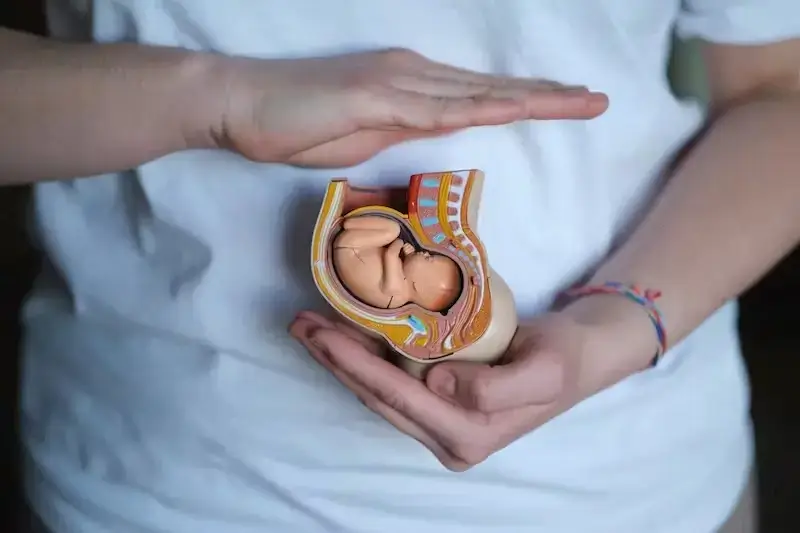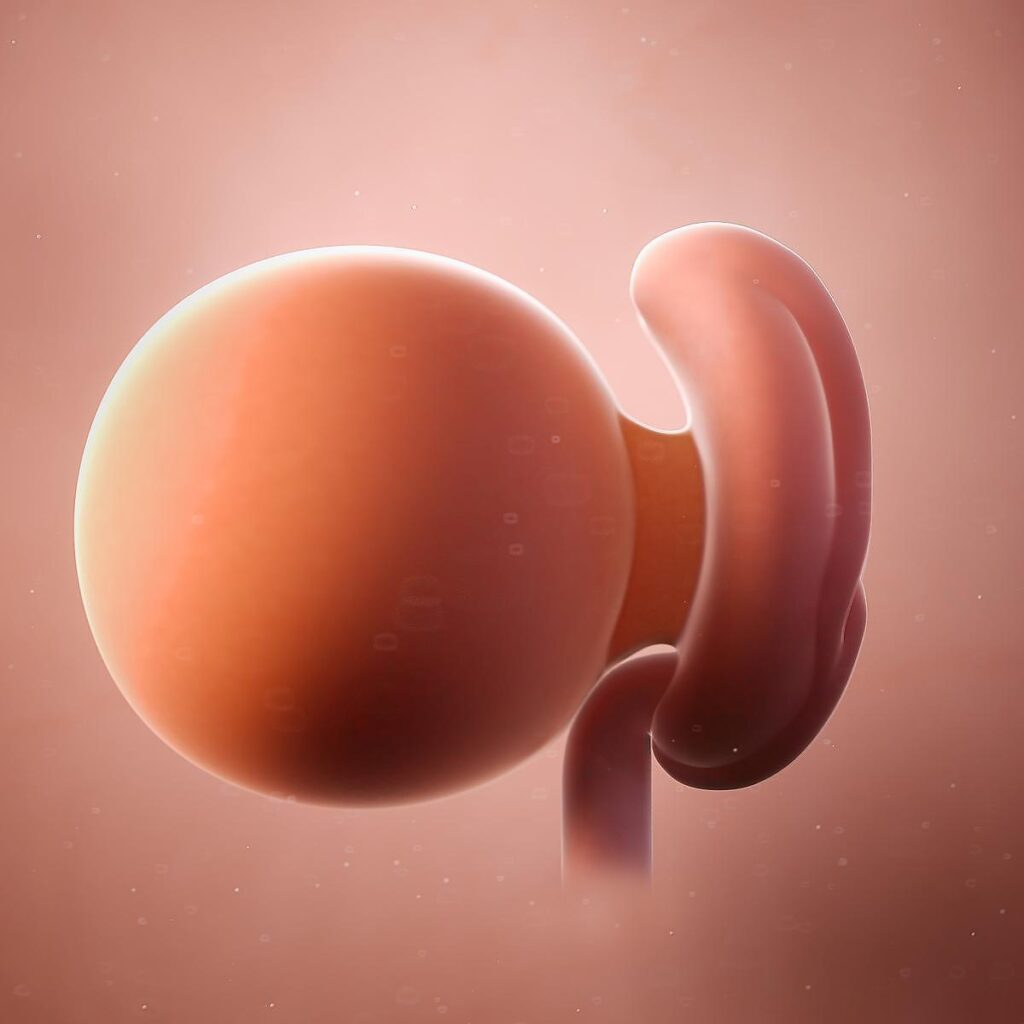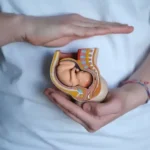
If you are 4 weeks pregnant, your baby has now reached the size of a head pin and will soon begin to develop body parts and inner organs. Your body may already behave weird, though it’s easy to mistake the cramps and possible spotting for premenstrual symptoms (PMS).
Related: 10 Best At-Home Fertility Tests in 2023
4 Weeks Pregnant – Fetus

At 4 weeks pregnant, the fertilized egg has finally reached the embryonic stage of development! Actually, it has been defined as an embryo from the zygote stage, as the zygote already contains all the genetic material that is needed for prenatal development of your baby. Beginning with the ninth week, the baby will be called a fetus.
The embryo now measures about 0. 05 inch / 1mm, about the size of a head pin, weighs about 0.004 oz / 0.11 g, and keeps growing. A few weeks from now, the placenta will be fully formed and will begin supplying the embryo with the necessary nourishment, but in the early weeks of pregnancy the embryo gets the necessary blood supply from a tiny yolk sac. During the fourth week of pregnancy, the yolk sac will be partially incorporated into the embryo body, forming your baby’s gut.
For now, the baby is just a grouping of cells that have arranged themselves into three layers from which the inner organs, eyes, nose, mouth, hands and feet will soon start developing:
The outer layer (ectoderm), becomes the brain and nervous system, the eye lenses, tooth enamel, skin and nails, nostrils, the lining of mouth, anus and sweat glands.
The middle layer (mesoderm), becomes the heart, blood vessels, muscles and bones. It also induces the growth of the neural plate from which your baby’s nervous system will develop.
The innermost layer (endoderm), forms the linings of the respiratory (breathing) and digestive systems, that is, the lungs, stomach, gut, bladder and part of the urethra.
During the fourth week of pregnancy, the embryo will also develop a tail. Why do human embryos have a tail? The common explanation is that all mammals share a common ancestor and all mammal embryos go through similar prenatal development stages in the womb. After a few weeks the tail will recede and its tissues will form your baby’s tailbone, the leftover of the tail other mammals have. Although prehistoric humans did not have tails, this temporary tail is a truly fascinating reminder of the fact that our link to the animal kingdom is much deeper than it may seem.
The fourth week is a most critical point in your baby’s development. As all the major organs are developing during this stage, the embryo is at high risk for abnormalities. Avoid taking unnecessary medications. If you still haven’t quit drinking alcohol or smoking, this is the time. You will have plenty of time for these little pleasures in the future. If you’re not too queasy, do your best to follow a healthy exercise routine – it will help you stay in shape, reduce lower back pain and relieve possible stress.
If you exercised regularly before pregnancy, you may continue your activity, but be careful not to overdo it. If you have never exercised before, you can start following a moderate exercise routine after consulting with your caregiver. If you began training in a gym, tell the instructor that you’re pregnant and ask for a suitable, safe workout.
Related: Say Goodbye to Pregnancy Headaches
4 Weeks Pregnant – Symptoms
The 4 weeks pregnant belly is still as flat as it used to be before you got pregnant (though some women complain of feeling bloated in the early weeks of pregnancy), but a flat tummy is only a partial comfort when you’re suffering from devastating nausea and unpleasant cramps, or crawling back home from work absolutely exhausted. Mood swings are not uncommon, and you might find yourself feeling overly emotional without any apparent reason. Light bleeding or spotting can easily make you think you’re getting your period. The discharge usually ranges from red to brown.
You might notice that your breasts are getting bigger, and you will probably need a new bra soon enough. If you intend breastfeeding, don’t buy a nursing bra just yet – your breasts will probably get even bigger in the following months. It is best to wait until the end of pregnancy.
Obviously, not all women experience all those symptoms at once and some lucky mothers-to-be don’t experience any of them, but most of us aren’t that lucky.
Related: Pregnancy – signs and symptoms
4 Weeks Pregnant – Questions
Now that you got a positive result on your pregnancy test, you’re probably curious to know your due date. Let’s see how the date is calculated and just how reliable is the result.
1. How do I Calculate my Estimated Due Date?
Your pregnancy will be counted from the first day of your last menstrual period (LMP) even though you conceive only two weeks after. To find out your approximate due date using a due date calculator, select the date of the first day of your last menstrual period and your average cycle length. Your approximate due day is the first day of your last period, plus 40 weeks (280 days).
2. Is the Due Date Accurate?
There’s a reason why they call it an Estimated Due Date. Only 5% of babies are born on their due date and the majority are born two weeks either side, but it’ the best way we have to be prepared for the big day.
Related: 5 Weeks Pregnant – Fetus

